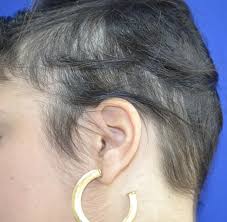
Breaking News
 O'KEEFE INFILTRATES DAVOS WORLD ECONOMIC FORUM
O'KEEFE INFILTRATES DAVOS WORLD ECONOMIC FORUM
 We're Better Than We Think We Are
We're Better Than We Think We Are
 Mike Benz reminds MAGA who the REAL enemy is. And it's our fault…
Mike Benz reminds MAGA who the REAL enemy is. And it's our fault…
Top Tech News
 The day of the tactical laser weapon arrives
The day of the tactical laser weapon arrives
 'ELITE': The Palantir App ICE Uses to Find Neighborhoods to Raid
'ELITE': The Palantir App ICE Uses to Find Neighborhoods to Raid
 Solar Just Took a Huge Leap Forward!- CallSun 215 Anti Shade Panel
Solar Just Took a Huge Leap Forward!- CallSun 215 Anti Shade Panel
 XAI Grok 4.20 and OpenAI GPT 5.2 Are Solving Significant Previously Unsolved Math Proofs
XAI Grok 4.20 and OpenAI GPT 5.2 Are Solving Significant Previously Unsolved Math Proofs
 Watch: World's fastest drone hits 408 mph to reclaim speed record
Watch: World's fastest drone hits 408 mph to reclaim speed record
 Ukrainian robot soldier holds off Russian forces by itself in six-week battle
Ukrainian robot soldier holds off Russian forces by itself in six-week battle
 NASA announces strongest evidence yet for ancient life on Mars
NASA announces strongest evidence yet for ancient life on Mars
 Caltech has successfully demonstrated wireless energy transfer...
Caltech has successfully demonstrated wireless energy transfer...
 The TZLA Plasma Files: The Secret Health Sovereignty Tech That Uncle Trump And The CIA Tried To Bury
The TZLA Plasma Files: The Secret Health Sovereignty Tech That Uncle Trump And The CIA Tried To Bury
Incredible before and after pictures reveal staggering transformation of 13-year-old...

A 13-year-old girl who was left completely bald from her alopecia has made an incredible transformation after taking an arthritis drug.
The unidentified teenager, from Brazil, had slowly been losing her hair for five years and standard medications failed to help. Doctors tried tofacitinib as a last-resort.
Tests of the drug, marketed as Xeljanz, have shown it can help alopecia patients regrow their hair – but it is not yet licensed as a conventional treatment.
After just four months, the girl regained a significant amount of her hair. She was left with thick, brown locks within two years of taking tofacitinib.
The results add to the evidence that the drug could offer hope for millions of patients around the world with alopecia, who have slim chances of making a full recovery.
Tofacitinib is routinely given to patient with rheumatoid arthritis, which is caused by inflammation. Dermatologists say the type of alopecia the girl had is caused by the same process.
Medical student Rachel Berbert Ferreira, at Centro Universitario Cesumar, was the senior author of the paper in Clinical Case Reports.

 A Report from Middle America
A Report from Middle America
 Nano Nuclear Enters The Asian Market
Nano Nuclear Enters The Asian Market


